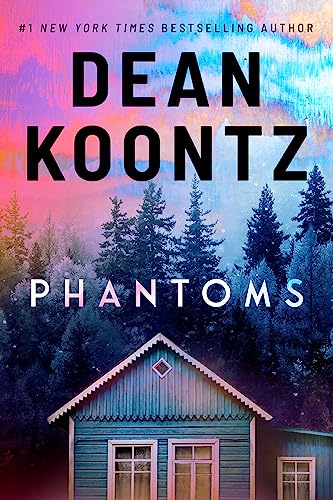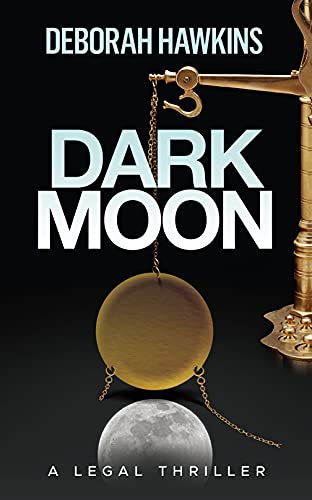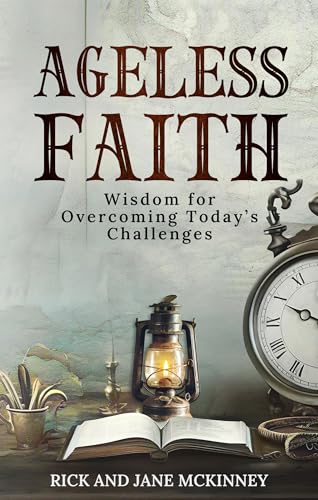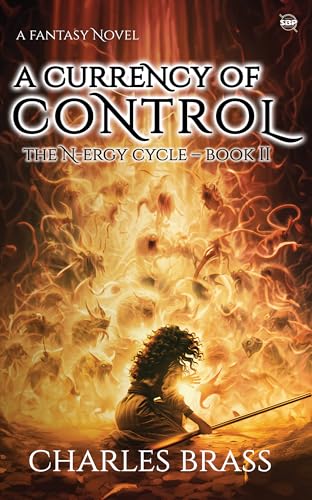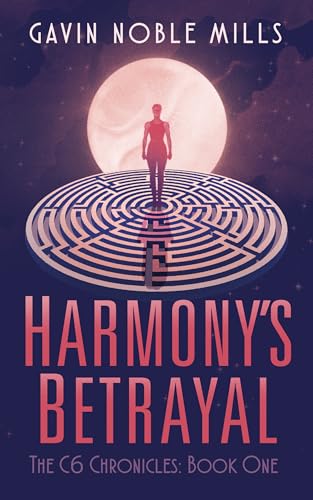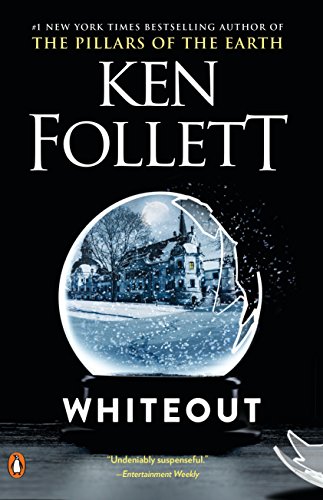Just the other day we announced that David Richards & Leonard Foglia’s suspense filled The Surrogate, The Sudarium Trilogy is our Thriller of the Week and the sponsor of thousands of great bargains in the thriller, mystery, and suspense categories: over 200 free titles, over 600 quality 99-centers, and thousands more that you can read for free through the Kindle Lending Library if you have Amazon Prime!
Now we’re back to offer our weekly free Thriller excerpt, and we’re happy to share the news that this terrific read is FREE for Kindle Nation readers during its TOTW reign!
The Surrogate, The Sudarium Trilogy – Book one
by David Richards, Leonard Foglia

The epic story of a holy relic, an innocent girl, a diabolical experiment that threatens to rip society asunder, and a young man who must find his soul, if he is to save himself. “The Sudarium Trilogy” is a thriller for our times.
In a remote corner of the Cathedral of Oviedo in Spain, Father Miguel Alvarez is in charge of taking care of the most holy relic of all Christendom: the sudarium, the towel-sized cloth which covered the face of Christ immediately following his death. At eighty years of age, behind the heavy grated door to the Camara Santa (the Holy Chamber), he prays fervently before the relic. Suddenly, a pair of hands grips his head, forcing him to breathe a moistened cloth that causes him to lose consciousness. Not, however, before he sees a masked figure with a scalpel in his hand leaning over the holy bloodstained sudarium. Seven years later, in Fall River, Massachusetts, Hannah Manning, a 19 year-old waitress, is waiting for a sign – something that will tell her what she is supposed to be doing with her life. One day, she notices an advertisement in the newspaper looking for surrogate mothers. The emptiness in Hannah’s life suddenly subsides; she seems to have found something meaningful to do with herself. Instead of finding fulfillment as a surrogate mother, however, Hannah ends up taking a terrifying journey deep into a land of fanaticism and zealotry.
An international bestseller already published in Spain, Mexico, Brazil, Poland and Russia.
And here, for your reading pleasure, is our free excerpt:
THE SURROGATE
Leonard Foglia and David Richards
1:1
(Seven years ago)
How fortunate he was!
The last 40 years of his priesthood had been spent in the cathedral, amidst the gold carvings, the soaring arches and the monumental stonework that with time had taken on the appearance of gray velvet. Such beauty never failed to move him.
But it was on this day, every year, that Don Miguel Alvarez was reminded how truly blessed he was.
This was the day the precious relic was taken out and displayed to the faithful. For only a minute, the archbishop held it high above the altar, so that the throngs who packed the nave, could see it with their own eyes, marvel at its provenance and revere it in all its holiness. Usually, during services, the 14th century edifice echoed with coughs and footsteps and the bustle of people kneeling down and getting back up. But for that one minute, every year, the stillness was all-enveloping.
Thinking about it sent a shiver down his spine.
Once the mass was ended, the archbishop would kiss the silver frame that held the relic, then give it to Don Miguel, who removed it to the safety of the sacristy. Watching over it in the sacristy, until the congregation had departed, was both a duty and an honor for the priest. But nothing like the honor that awaited him, once the congregation was gone, the thick oaken cathedral doors had been closed, and the lights that bathed the altar in molten yellow had been extinguished.
For then, Don Miguel Alvarez took the relic back to its resting place in the Camara Santa, the holy chamber, “one of the holiest places in all of Christianity,” he liked to inform visitors. Sometimes, pride got the better of him and he said “the holiest place.”
For 40 years now, he had made this journey with this most venerable of relics. He could have done it with his eyes closed, so well he knew the feel of the tile in the ambulatory under his feet. The earthen scent and cool air, coming from below, were enough to alert him he was before the wrought iron gates that protected the access to the Camara Santa.
At his approach, an attendant, stationed outside the gates, unlocked the massive padlock, threw back the bolt and allowed Don Miguel to enter. A staircase rose up before him, turned left, then left again, before descending to the chamber that was his destination. Millions of pilgrims, not to mention kings and popes, had passed this way over the centuries just to behold the cupboard that contained what he now held in his hands.
Don Miguel was nearing 80 and arthritis plagued his joints. But never here. Never when his hands touched the relic. A kind of rapture seized him and he had the impression of floating over the worn steps.
He came to a second grille, through which were visible the various chests and cases that housed the cathedral’s many treasures. The attendant unlocked this gate, too, then retreated up the stairs, so that the priest could perform his chores in privacy.
As he had done so often in the past, Don Miguel placed the relic on the silver-plated chest before him and knelt to pray. Its ultimate place was in the gilded wardrobe against the wall. But the priest was reluctant to put it away so quickly. The moments he spent alone with this holiest of relics, contemplating its miraculous promise, were among the most sublime of his existence.
In front of the cathedral, a warm wind swept across the broad, treeless plaza, and the last of the congregation headed home or to their favorite cafes, jabbering noisily, as they went. But the holy chamber, cool and peaceful, was beyond the reach of time and turbulence.
Here Don Miguel was surrounded by all the symbols and icons of his faith. The celebrated “Cross of the Angels,” a magnificent gold cross – square in shape, studded with jewels and supported by two kneeling angels – was not only the symbol of the cathedral, but of the whole region, where he had been born and lived his long life. The chest to the right of him contained bones of the disciples – the disciples’ disciples, actually – in velvet bags. Six thorns, said to be from Christ’s crown, were stored in the cupboard. So was a sole from one of St. Peter’s sandals.
But they paled to insignificance before the relic that had been entrusted to him. The relic of relics. What had he, a simple priest, never much of a scholar and now an old man, done to deserve such fortune?
He closed his eyes.
A gloved hand suddenly wrapped around his mouth. He tried to turn and see who it was, but the hand gripped his face like a vice. He smelled leather, then another, sharper odor stung his nostrils. Even as he struggled for air, a second pair of hands reached past him for the relic.
“No, no, lo toques,” he cried out, as best he could. “Estás loco? Cómo se te ocurre que puedas tocarlo?”
Touch the relic? Was this person mad? The gloved hand muffled his cries. His body had little resistance to offer and the pungent odor was making his head spin. He could only watch in horror as the second intruder took a small scalpel from his jacket. Don Miguel braced for the sear of pain that would mean the blade was being drawn across his neck. But instead, the person turned away, moved toward the silver chest and bent over to examine the relic more closely.
The priest cursed himself inwardly. He should have done his job and returned promptly to the cathedral. It was his selfish desire to be alone in the Camara Santa that had allowed this terrible sacrilege to happen. The Cross of the Angels seemed to be melting before his eyes, the jewels turning to red and green slime that oozed over the wings of the angels at the base. He realized that, deprived of oxygen, his vision was distorted and his mind was hallucinating.
All he could think was how miserably he had failed. What God had given into his care, no man should look upon except with awe. But because of him, the relic was being defiled. His heart ached with shame.
God would never forgive him.
1:2
Hannah Manning was waiting for a sign. Something that would tell her what she was supposed to be doing with her life, guide her somehow. She had been waiting for months now.
She gazed at the gold star on the top of the Christmas tree and thought of the Wise Men who had followed it a long time ago. She wasn’t foolish enough to believe her sign would be anything so grand or her destiny so momentous. Who was she? Just a waitress. For the time being, though, not forever. Only until she got her sign. And it didn’t even have to be a sign, she was thinking now. Just a nudge or a push would be sufficient. Like the wise men, she’d know instinctively what it meant.
She had drifted long enough.
“Do you believe it? Seven lousy dollars, twenty-three cents and a Canadian dime.” In a booth at the rear of the diner, Teri Zito was tallying her tips for the night. “Everybody’s back to their usual chintzy selves.”
“I didn’t do very well, either,” said Hannah.
“Ah, what do you expect in this cheapskate burg?” Teri tucked the money into the right pocket of the frilly brown-and-white checked apron that the waitresses at the Blue Dawn Diner wore as part of their uniform. “The holidays are the only time it occurs to anybody around here to leave a decent tip. And these seven lousy dollars and 23 cents are telling me that the holidays are officially over.”
Standing on a wooden stool, Hannah was carefully removing the ornaments from the diner’s spindly Christmas tree, which was looking even spindlier without lights and shiny baubles to fill in the holes. She reached up and with a jerk tugged the gold star off the top branch. The fluorescent lights reflected off the metallic foil, spangling the ceiling.
Two events had conspired to rouse Hannah out of her lethargy. In the fall, most of her high school friends had left Fall River for college or jobs in Providence and Boston. Her sense of being left behind had only grown more intense with each passing month. She realized that they’d actually been preparing for the future all through high school and she hadn’t.
Then in December, the anniversary of her parents’ death had come around, which meant they’d been gone for seven years. Hannah was shocked to find that she couldn’t see their faces any longer. Of course, she had images of them in her mind, but the images all came from photographs. None of her memories seemed to be first-hand. Snapshots of her mother laughing and her father cavorting in the back yard were what she remembered. She couldn’t hear the sound of her mother’s laughter any more or feel her father’s touch when he swooped her off the ground and tossed her playfully into the air.
She couldn’t go on forever being the girl who lost her parents. She was a grown-up, now.
In fact, Hannah Manning had only recently turned nineteen and appeared several years younger. She had a pretty face, still childlike in some ways with its turned-up nose and eyebrows that arched perfectly over pale blue eyes. People had to look closely to see the scar that bisected the left eyebrow, the consequence of a tumble off a bicycle at the age of nine. Her hair was long and wheat-colored and to Teri’s enduring exasperation, naturally wavy.
Hannah’s height – five feet seven – and her willowy figure were also matters of some envy for Teri, who had never quite recovered her fighting weight, as she put it, after giving birth to two sons. Teri was now a good twenty pounds heavier than the Jenny Craig ideal for one of her compact stature, but she consoled herself with the thought that she was also a good ten years older than Hannah, who probably wouldn’t be so svelte at 29, either.
If only the girl would slap a little make-up on that face, Teri mused, she’d be a real knock-out. But Hannah didn’t seem to have much interest in boyfriends. If one had ever shown up at the diner, Teri certainly hadn’t seen him and she was pretty good about keeping an eye on the men.
“Remember when Christmas actually meant something – besides money!” Hannah sighed, wrapping the star in tissue paper and putting it into a cardboard box for safe-keeping. “You couldn’t go to sleep at night because you were afraid Santa was going to pass over your house. And you’d wake up at 6 and there were all those packages under the tree and it would be snowing outside. People sang carols and had snowball fights and everything. It was wonderful.”
“That was just a commercial you saw on TV, honey” replied Teri, who checked her right pocket in the unlikely event she had overlooked an extra bill or two. “I don’t think Christmas ever existed like that. Maybe in your fantasy childhood, but not in mine! Oh, I’m sorry, I didn’t mean to—-”
“It’s okay.”
That had to stop, too, Hannah thought. Everyone treating her with kid gloves because she didn’t have parents, minding what they said for fear of hurting her feelings.
“I think that Christmas trees are wrong,” she announced loudly, as she stepped off the stool and contemplated the brittle, dried-out specimen, bereft of its construction paper chains and plastic angels. “We cut down a perfectly beautiful tree, just so we can drape it with garbage for a few weeks, and then we toss it out in the trash once we’re done. It’s such a waste.”
She wouldn’t have admitted it to Teri, but she felt a kind of empathy for the sorry fir that had been chopped off at the roots and made to stand by the door of the Blue Dawn Diner, where it had been ignored by most of the customers, except for the occasional child who tried to yank off one of the ornaments and got slapped on the wrist for it. It seemed so pathetic, so lonely, that sometimes she felt she might cry.
Holidays were always hard to get through, a big game of pretend she played with her uncle and aunt: Pretending to care, when she didn’t, pretending to be happy, when she wasn’t; pretending to a closeness that wasn’t there and never had been. All the make-believe did was leave her sadder and lonelier than before.
That was still another thing that had to stop. If she ever intended to get on with her life, she would have to move out of her aunt and uncle’s house.
“Come on,” Teri said. “I’m not going to let you stand there and feel sorry for a stupid tree. Let’s give it a proper burial.”
She grabbed the fir by the stump, while Hannah took the other end and they maneuvered it clumsily toward the back door of the diner, leaving a shower of brown needles behind them.
The door was locked.
Teri shouted into the kitchen where Bobby, the chef and night manager, was profiting from the absence of customers to wolf down a hamburger. “I don’t suppose you could spare a moment to unlock this door.”
Bobby deliberately took another bite of the hamburger.
“Didn’t you hear me, you lazy fuck?”
He wiped the grease off his chin with a paper napkin.
“Don’t move too fast. You might have a stroke.”
“Oh yeah? Well, stroke this, Teri,” he said, pushing his pelvis at her lewdly.
Teri recoiled in mock horror. “Let me get out my tweezers first.”
The women tugged the tree out into an empty parking lot edged by drifts of dirty snow. The air was so cold it cut. Hannah could see her breath.
“I don’t know how you two can talk to each other like that every day,” she said.
“Hon, it’s my reason for living – just knowing when I get up every day that I can come in here and tell that turd what I think of him. Don’t need an aerobics class to get my blood pumping. All it takes is the sight of that man’s thinning hair, that double chin and the caterpillar crawling across his upper lip that he calls a mustache.”
Hannah laughed despite herself. Teri’s vocabulary sometimes shocked her, but she admired the older woman’s feistiness, probably because she had so little herself. Nobody bossed Teri around.
At the dumpster, they rested the fir on the ground for second, while they caught their breath. “On three now,” Teri instructed. “Ready? One, two, threeeeeeee…” The tree soared up into the air, caught the edge the dumpster and tumbled inside. Teri slapped her hands together vigorously to warm them. “It’s colder than a witch’s tittie out here.”
As they retraced their steps across the parking lot, Hannah glanced up at the neon sign that spelled out Blue Dawn Diner in letters of cobalt blue. Behind them, blinking rays, once yellow, now faded to a sickly gray, fanned out in a semi-circle in imitation of the rising sun. The sign seemed to be heralding dawn on a distant planet, and the blue neon made the snow look radio-active.
Was that sign her sign, the rising sun and the blinking rays telling her a new day was coming, a world beyond this one, something other than long hours at the diner, surly customers in red-vinyl booths, lousy tips and Teri and Bobby squabbling like alley cats?
She caught herself. No, it was just an aging neon sign, losing its paint, that she had seen a thousand and one times.
Teri stood shivering at the diner door.
“Get yourself inside, hon. You’ll catch a death of cold.”
Hannah slid into the corner of the back booth that was unofficially reserved for the staff and ceded to customers only on Sunday mornings, after church services, when the Blue Dawn Diner did its liveliest business. Teri usually had a crossword puzzle going and although she was not supposed to, sneaked a few puffs on a cigarette if nobody about, which accounted for the dirty ashtray. After a long shift, it was a cozy place to curl up. Hannah let her tired body relax and her mind empty out.
She took a look at the day’s puzzle, saw that it was half completed,
and contemplated giving it a try. Teri never objected to a little help. Then her eyes went to the flowing script, underneath.
Are you a unique and caring person?
Curious, she angled the newspaper so that it better caught the light.
This could be the most fulfilling thing you ever do!
Give the gift that comes directly from the heart.
It looked like an advertisement for Valentine’s Day, with hearts in each corner and in the center, a drawing of an angelic baby, gurgling with delight. But Valentine’s Day was a month and a half away. Hannah read on.
With your help a happy family can be created.
Become a surrogate mom
for more information, call
Partners in Parenthood, Inc.
617 923 0546
“Look at this,” she said, as Teri placed two mugs of piping hot chocolate on the table and slid into the booth, opposite her.
“What?”
“In today’s Globe. This ad.”
“Oh, yeah. They get paid a lot of money.”
“Who does?”
“Those women. Surrogate mothers. I saw a thing about it on TV. It’s a little strange if you ask me. If you’re going to all the bother of carting a kid around in your belly for nine months, you ought to be able to keep the little bastard afterwards. I can’t imagine giving it away. It’s kind of like being a baker. Or being the oven, actually. You bake the bread and somebody else takes it home.”
“How much do they get paid, do you think?”
“I saw on Oprah some woman got $75,000. People are pretty desperate to have kids these days. Sone of those rich people will pay a fortune. Of course, if they knew what kids are really like, they wouldn’t be so quick to shell out. Wait until they find out they’ll never have a clean living room again.”
A voice came from the kitchen. “Enough gabbing, girls.” The overhead lights went out.
“Do you mind if I take your paper?”
“All yours. I was never gonna get 26 down anyway.”
At the door, Hannah gave her friend a quick kiss on the cheek and darted across the lot to a battered Chevy Nova. Once she was inside, Bobby flicked off the Blue Dawn Diner sign. Clouds masked the moon, and without the neon lights, the place looked even more forlorn to her.
She gave a honk of the horn, as she guided the Nova out onto the roadway. Teri honked back and Bobby, who was locking up the front door, managed a vague wave.
The newspaper lay on the seat next to Hannah all the way home. Although the roads were freshly sanded and free of traffic, she drove prudently. Up ahead, a stoplight turned red and she pumped the breaks gingerly to keep the Nova from skidding.
While waiting for the signal to change, she cast an eye at the newspaper. The print wasn’t legible in the dark, but she remembered exactly what the advertisement said. As she pulled away from the intersection, she could almost hear a voice whispering, “This could be the most fulfilling thing you ever do.”
1:3
Standing guard at the gate, the attendant shifted lazily from one foot to the other. The cathedral wouldn’t reopen until late afternoon, and his thoughts had already gravitated to the cold beer he’d get himself in a few minutes.
Out of the corner of his eye, he thought he saw a flash of movement in the shadows on the northern side of the transept. But he was in no hurry to investigate. Over the years he’d learned that the light flickering through the stained-glass windows played tricks with his weary eyes. And he was long since accustomed to the murmurs and groans that emanated from stone and wood, when the church was empty. His wife said it was the saints talking and that the house of God was never empty, but personally the attendant figured the sounds were merely those of an old edifice getting older.
Didn’t his own bones crack now and again?
Except that the noise he was now hearing was different. It was that of whispered words, the rush and tumble of supplication. Then he saw another flash of movement and moved away from the gate to get a better view. Indeed, a woman on her knees was praying in front of the Altar de la Inmaculada, one of the Baroque splendors of the cathedral that depicted a large-than-life Mary, surrounded by a golden sunburst that attested to her sanctity.
The woman’s eyes were locked on the delicately carved face, which gazed down with infinite understanding on the worshippers who sought her mercy. Enraptured, the woman was obviously oblivious to the fact that the cathedral had closed.
It was not the first time this had happened, thought the attendant, nor would it be the last. The cathedral’s multiple chapels made it easy to overlook some poor soul at closing time. He usually had to make the rounds twice, and would have done so today, had it not been his duty to accompany the priest to the Camara Santa.
He approached the woman slowly, not wanting to startle her and hoping the sound of his feet on the stones would get her attention. As he got closer, he realized that she wasn’t Spanish. The colorful straw bag at her side and her stylish leather jacket suggested she was a tourist, although tourists usually just took a few pictures and left. And this woman seemed to be praying with the intensity of some of the elderly peasant women in the parish.
“Señora,” he whispered.
The woman’s prayer gained in fervor. “…We are but your servants. Thy will shall be done…” The attendant recognized the language as English. He glanced back at the entrance of the Camara Santa. He didn’t want the old priest to come down the steps and find the gate unguarded, but the woman was going to have to be escorted out of the church.
He touched her lightly on the shoulder. “Señora, la catedral está cerrada.”
She turned and looked at him uncomprehendingly. He wasn’t even sure she saw him. The pupils of her eyes appeared dilated, as if she were in trance.
She shook her head slowly. “I’m sorry. What?”
“La catedral está…” He searched his mind for the right word. “Closed, señora. The church is closed.”
The woman’s face suddenly flushed crimson with embarrassment. “Closed? Oh, I didn’t realize. I must have…lost track of the time….Perdón….Perdón, por favor.”
The attendant helped her to her feet, gathered up her straw bag and escorted her to the cathedral entrance. As they walked down the nave, she kept turning back, as if to get another look at the virgin.
“This really is one of the holiest places on earth,” she said, while the attendant unlocked the door. Her eyes had regained their luster and he felt her grip tighten on his arm. “It’s what I’ve been feeling, so it must be true. I mean, they do say that this is holy ground, don’t they?”
Not knowing what she was saying, the attendant nodded vigorously in agreement, before locking the heavy door behind her.
He glanced at his pocket watch. Was it his imagination or was Don Miguel praying longer than usual? As quickly as possible, he made his way to the Camara Santa, ready to explain the distraction that had taken him away from his post. Before he was halfway there, he spotted the priest, lying on his back. His legs were twisted to the side and his hands resembled rope knots on the stone floor. He seemed to have fallen asleep in mid-prayer.
Panic seized the attendant. The relic? What had happened to the relic?
He let out a sigh of relief.
Nothing! There it lay on top of the silver chest, undisturbed. He picked it up carefully and locked it away in the cupboard at the back of the crypt. Only then, when he turned his attentions to Don Miguel, did he realize that the priest was dead.
The attendant made the sign of the cross over the body that age had so shrunken. If his heart had to give out, how fitting, he thought, that it should give out here. The old priest had deeply loved this place. His devotion had been without limits. And now he looked so peaceful.
Surely he had gone to his just reward in Heaven.
How fortunate he was!
Continued….
Click on the title below to download the entire book and keep reading

